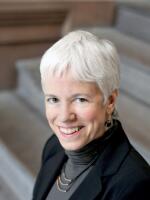Several proposals in Washington right now including the changes to the Affordable Health Care Act, could mean multibillion dollar budget gaps for New York State. With the budget due in one week, Governor Andrew Cuomo and legislative leaders think that at the very least, they may have to come back later in the year to revise the spending plan.
With just over a week to go before the budget deadline, Governor Cuomo said for the first time hinted that the spending plan might not be completed on time because of all the uncertainty over federal funding from Washington.
“I will be talking to the leaders about it,” Cuomo said “Because if you don’t know the immediate financial future, it is very hard to do an intelligent budget.”
A spokesman for the governor clarified that Cuomo is still committed to completing the budget by the deadline, even if there are some big uncertainties about future federal funding.
In addition to potential changes to Obamacare, which could cost the state billions in federal funding, Cuomo says there could likely be cuts to housing programs, and energy assistance for the poor.
And the governor warns that it won’t only be the state budget that suffers. He says New Yorkers could be hit hard by a proposal to end federal deductions for state and local taxes. Since New York has among the highest taxes in the nation, residents would have to pay essentially, a federal tax on money already taxed by the state and, local governments, and school districts.
“In effect, probably, the largest single tax increase in the state’s history,” the governor said.
Despite the deep federal cuts that could be coming in the next couple of years, the governor is not yet ready to sign onto a plan by Assembly Democrats to expand an existing tax on millionaires to add three more, higher tax brackets.
The governor does support extending the existing income tax surcharge on millionaires when it expires later this year, which he doesn’t count as a new tax.
But he says even the Assembly Democrats’ tax the rich plan would not yield enough money to make up for anticipated cuts. He says new taxes would have to be imposed on middle class taxpayers as well, with an average hike of 10 percent, something he views as unacceptable.
“It would be such a large number that you'd probably have to rest taxes on everybody and I’m not doing it,” Cuomo said.
Cuomo is seeking new powers in the budget to make changes in the spending plan unilaterally if things change later in the year. Legislative leaders for both major parties rejected that idea.
Senate Republican Majority Leader John Flanagan believes lawmakers will likely be back later in the year to revise the spending plan, something he says is not unprecedented. He says after the terrorist attacks on September 11, 2001, lawmakers returned to the Capitol. They did not decide on a final budget until October of that year.
“If there are huge events that happen at the federal level that would require us to go back into session, I’m confident that not only would the governor call us back, but we would come back, both the Assembly and the Senate, ” Flanagan said.
Assembly Speaker Carl Heastie has said for weeks now that he and his Democratic members are ready to return if needed, to fix any budget holes that might occur.
“It’s like running your house,” Heastie said. “If you don’t have enough income coming in, you might have start to cut back on some of the things that are important.”
In the meantime Speaker Heastie, Senator Flanagan and Governor Cuomo are engaged in private meetings to try to decide on a new spending plan based on the numbers that they now have.







